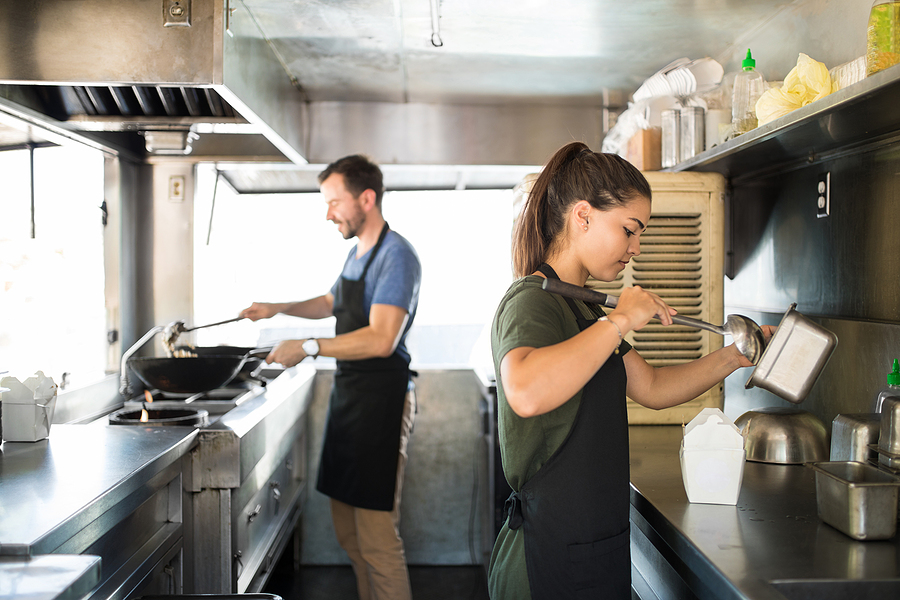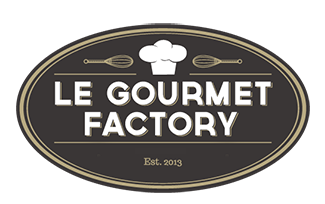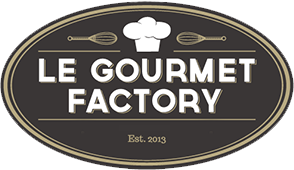Embarking on a food truck venture is an exciting endeavor, offering entrepreneurs the opportunity to showcase their culinary skills and connect with food enthusiasts on the go. Among the myriad of tasks that await aspiring food truck owners, obtaining the necessary licenses and permits takes precedence. These can vary from state to state or even from county to county, so if you are starting a food truck business, you would need to check with your state and local government to determine exactly what you would need.
Business License
A business license is a foundational requirement for food trucks, serving as a formal authorization to operate within a specific jurisdiction. This license is a critical component of legal compliance, affirming that the food truck has met the necessary criteria and regulatory standards to conduct business. Obtaining a business license for a food truck involves navigating local ordinances, submitting required documentation, and often undergoing inspections to ensure adherence to health and safety regulations.
Health Department Permit
Navigating the health department’s regulations is paramount. Food trucks are required to obtain a Mobile Retail Food Establishment License, ensuring that the food served meets safety standards. This includes regular food truck inspections to guarantee compliance with health codes, temperature regulations, and proper hygiene practices.
Food Handler’s Permit
Individuals handling food in a mobile establishment must secure a Food Handler’s Permit. This entails completing a certified food safety course, equipping you with the knowledge to handle food safely and prevent potential health hazards. The certification process covers a spectrum of topics, including proper food storage, hygiene practices, and guidelines for preventing cross-contamination. Additionally, it ensures that food handlers are well-versed in temperature control measures and understand the significance of maintaining a sanitary environment.

Fire Safety Permit
Safety is paramount in the food industry, and food trucks may also be required to obtain a Fire Safety Permit. This involves a rigorous inspection, focusing on fire prevention measures within the food truck. Evaluations include the proper installation and accessibility of fire extinguishers, staff training on their operation, compliance with safety protocols, and a review of electrical systems to minimize fire risks. Additionally, the assessment encompasses the examination of emergency exits and protocols for the storage and handling of flammable materials, ensuring a comprehensive approach to fire safety.
Vendor License
To legally operate a food truck, a Vendor License is typically required. This license covers the sale of goods or services, including food, within a specific municipality. Acquiring a Vendor License involves adhering to local regulations and securing official approval to conduct business as a food vendor. This process ensures that vendors comply with the specific rules and guidelines governing their chosen municipality.
Parking Permit
Securing a designated parking spot is a key logistical consideration for food trucks. In some states and municipalities, a parking permit is required to avoid fines, maintain a consistent and legal location, and ensure the smooth operation of your food truck.
One More Thing
To obtain some of the licenses and permits for starting a food truck business, securing a commissary kitchen is required. Besides complying with local regulations, a commissary kitchen can provide several benefits for a food truck operator. Number one is space – this is very limited on a food truck. A commissary kitchen can provide ample space for prep work to be done quickly and efficiently. Having your own kitchen space would require additional inspections and certifications. A commercial commissary kitchen will have all the necessary certifications as well as commercial-grade equipment, access to potable water, liquid and solid waste disposal, food storage, and parking.

Commissary Kitchen Rentals
If you are starting a food truck business or have an established business and require a commissary kitchen in the New York and New Jersey metropolitan areas, consider partnering with Le Gourmet Factory.
Our state-of-the-art facility boasts six fully equipped commercial kitchens that adhere to the highest standards. From professional-grade appliances to Board of Health certification, we offer a seamless culinary experience. With 24/7 accessibility, flexible scheduling, and a supportive community of like-minded individuals, we empower food truck businesses to thrive.
By choosing Le Gourmet Factory, food truck owners can complement their mobile operations with a dedicated kitchen space. Whether it’s menu expansion, efficient production, or ensuring regulatory compliance, our facility is designed to fuel culinary success. Check out our FAQs to learn more about what makes Le Gourmet Factory different. Request a discovery call today!
FAQs for Starting a Food Truck Business
Why is a Business License Necessary for a Food Truck?
A business license is a fundamental requirement, signifying formal authorization to operate within a specific jurisdiction. It assures legal compliance and adherence to regulatory standards, ensuring the food truck has met the necessary criteria to conduct business.
What Health Department Permits are Required for Food Trucks?
Food trucks must obtain a Mobile Retail Food Establishment License, ensuring the safe preparation and serving of food. This involves regular inspections to guarantee compliance with health codes, temperature regulations, and hygiene practices to maintain the highest standards of food safety.
How Can I Obtain a Food Handler’s Permit?
Individuals handling food in a mobile establishment must secure a Food Handler’s Permit by completing a certified food safety course. This comprehensive training equips food handlers with the essential knowledge to handle food safely, covering topics such as proper storage, hygiene practices, and cross-contamination prevention.
Why is a Fire Safety Permit Important for Food Trucks?
Safety is paramount, and a Fire Safety Permit involves a thorough inspection focusing on fire prevention measures within the food truck. This includes proper installation and accessibility of fire extinguishers, staff training, compliance with safety protocols, and a review of electrical systems to minimize fire risks.
Do I Need a Vendor License to Operate a Food Truck?
Yes, a Vendor License is typically required to legally operate a food truck. This license covers the sale of goods or services, including food, within a specific municipality. Acquiring a Vendor License involves adhering to local regulations and obtaining official approval to conduct business as a food vendor.
Why is a Parking Permit Essential for Food Trucks?
Securing a designated parking spot is crucial for food trucks, and in some states and municipalities, a Parking Permit is required. This permit helps avoid fines, maintains a consistent and legal location, and ensures the smooth operation of the food truck.
How Can Le Gourmet Factory Support Food Truck Businesses?
Le Gourmet Factory offers state-of-the-art commissary kitchen rentals, a crucial component for obtaining licenses and permits. Our facility provides ample space, professional-grade equipment, and the necessary certifications, facilitating efficient food preparation and regulatory compliance for food truck operators in the New York and New Jersey metropolitan areas.

